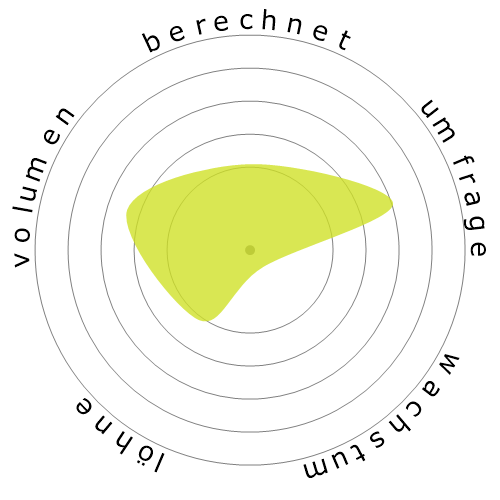Wasser- und Abwasserbehandlungsanlagen- und Systembetreiber
Wohin möchten Sie als Nächstes gehen?
Oder erkunden Sie diesen Beruf ausführlicher...


Was zeigt diese Schneeflocke?
Was ist das?
Wir bewerten Jobs anhand von vier Faktoren. Diese sind:
- Chance der Automatisierung
- Jobwachstum
- Löhne
- Anzahl der verfügbaren Stellen
Dies sind einige wichtige Punkte, über die man beim Jobsuchen nachdenken sollte.
Personen haben sich auch angesehen
Berechnetes Automatisierungsrisiko
Mäßiges Risiko (41-60%): Berufe mit einem mäßigen Automatisierungsrisiko beinhalten in der Regel Routineaufgaben, erfordern jedoch immer noch ein gewisses menschliches Urteilsvermögen und Interaktion.
Weitere Informationen darüber, was dieser Wert ist und wie er berechnet wird, sind verfügbar hier.
Benutzerumfrage
Unsere Besucher haben abgestimmt, dass es eine geringe Chance gibt, dass dieser Beruf automatisiert wird. Allerdings deutet das von uns erzeugte Automatisierungsrisikoniveau auf eine höhere Chance der Automatisierung hin: 59% Chance auf Automatisierung.
Was denken Sie, ist das Risiko der Automatisierung?
Wie hoch ist die Wahrscheinlichkeit, dass Wasser- und Abwasserbehandlungsanlagen- und Systembetreiber in den nächsten 20 Jahren durch Roboter oder künstliche Intelligenz ersetzt wird?
Gefühl
Das folgende Diagramm wird angezeigt, wenn genügend Stimmen vorhanden sind, um aussagekräftige Daten zu erzeugen. Es zeigt die Ergebnisse von Nutzerumfragen im Laufe der Zeit und bietet einen klaren Hinweis auf Stimmungstrends.
Gefühlslage über die Zeit (jährlich)
Wachstum
Die Anzahl der 'Water and Wastewater Treatment Plant and System Operators' Stellenangebote wird voraussichtlich um 6,0% bis 2033 sinken.
Gesamtbeschäftigung und geschätzte Stellenangebote
Aktualisierte Prognosen sind fällig 09-2025.
Löhne
Im Jahr 2023 betrug das mittlere Jahresgehalt für 'Water and Wastewater Treatment Plant and System Operators' 54.890 $, oder 26 $ pro Stunde.
'Water and Wastewater Treatment Plant and System Operators' wurden 14,2% höher bezahlt als der nationale Medianlohn, der bei 48.060 $ lag.
Löhne über die Zeit
Volumen
Ab dem 2023 waren 120.710 Personen als 'Water and Wastewater Treatment Plant and System Operators' in den Vereinigten Staaten beschäftigt.
Dies entspricht etwa 0,08% der erwerbstätigen Bevölkerung im ganzen Land.
Anders ausgedrückt, ist etwa 1 von 1 Tausend Personen als 'Water and Wastewater Treatment Plant and System Operators' beschäftigt.
Stellenbeschreibung
Betreiben oder kontrollieren Sie einen gesamten Prozess oder ein System von Maschinen, oft durch den Einsatz von Steuerungstafeln, um Wasser oder Abwasser zu übertragen oder zu behandeln.
SOC Code: 51-8031.00
Kommentare (8)
The risk involved with automating these specific jobs is too high, and the cost too great to cover all cases and mitigate all the risks, meaning these jobs should be safe for the future. Paradoxically, despite their absurd importance, funding seems to always get leaner every year.
Although many facets could be automated, integrating these automated systems into the majority of dilapidated infrastructure would be too cumbersome to be a real issue.
Auf Kommentar antworten